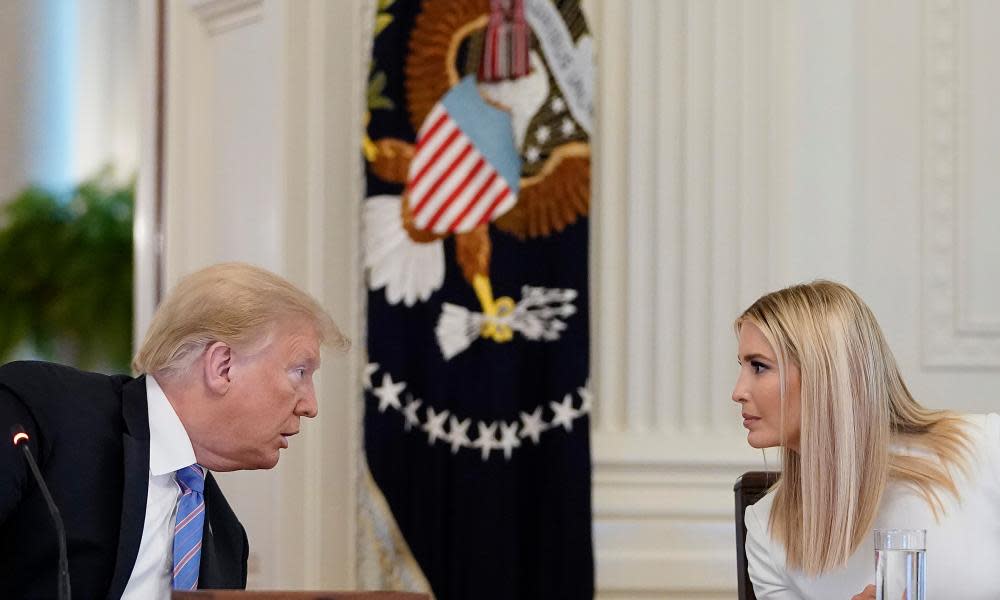Do you pay more than $750 in taxes? You've given more than Trump

Did you pay more than $750 in taxes in recent years? If so, your contribution to the greater good of the United States has been substantially higher than that of Donald Trump.
Related: Donald Trump ‘a bad businessman or a tax cheat – probably both’, say accountants
Thanks to a New York Times investigation, we can now see exactly how much the president of the United States has contributed to the public coffers each year over a period of several decades. The answer: usually zero, although he threw in the occasional $750 when he absolutely had to.
The revelation that Trump would pursue his own selfish interests at the expense of everyone else – especially the nation he aspired to and then eventually did lead – cannot be that surprising to anyone. But we should resist the temptation to not be outraged. The American taxation system is indeed broken, but Trump’s actions stand out as particularly egregious even within the context of a broken system, and he has paid far less tax than the average person of equivalent wealth (or at least, the wealth he claims to have). We should also consider the fact that the president of the United States should be held to a higher standard than the average crooked businessman.
Paying taxes is not just a concrete contribution towards government spending, but a symbolic affirmation that we recognize that we must all contribute towards the common good. Remarkably for a man who sought and then achieved the office of presidency (his first attempt came in the year 2000, when the Times data begins), Trump appears to have no concept of this. Throughout his business career, he has viewed contractors and partners as marks to be screwed over. It is now obvious that this view extends to the American people themselves, who he was happy to leave short-changed even as they struggled through terrorist attack, war and economic crisis.
But paying taxes is not some altruistic action which we take out of the goodness of our hearts. It is also a recognition that our own success is dependent on the fruits of public spending. The American jurist Oliver Wendell Holmes Jr once wrote: “I like to pay taxes. With them I buy civilization.” Rich people might often try to live in a bubble insulated from the rest of society, but they ultimately are dependent for their wealth on the infrastructure, the public safety and the stable business environment which only exist because the government has the money to create them. In fact, as unusually fortunate beneficiaries of these public goods, the rich have an even greater obligation to fund them.
He is not so much a successful businessman as a TV celebrity with a property empire he is running into the ground
It is also clear that Trump considers himself much smarter than regular tax-paying folk, who cannot afford the fancy lawyers or use the tax loopholes which allow him to pay a much lower tax rate than they do. Part of Trump’s appeal in 2016 was the promise that he was a smart, successful businessman who would put those talents in service of the interests of what he called “the forgotten people”. But this was just another elaborate con, a trick played on his supporters. He is not so much a successful businessman as a TV celebrity with a heavily indebted property empire which he is running into the ground in slow-motion. Look closely and the success and the smarts necessary to advance his supporters’ interests are a mirage. Only the con remains.
This leads us to the final way in which Trump is taking the country for suckers, even today. Before and during the presidency, Trump has continued to hemorrhage money. He desperately needs cash infusions and protection from creditors to whom he owes some $421m, much of which he has personally guaranteed.
Given this, it is little surprise that there has never been a president who sought – successfully – to profit from the presidency as much as Trump has. He continues to bilk the taxpayer by having government employees stay at his wildly unprofitable hotels. Most worryingly of all, his businesses continue to court foreign investors and partners from countries which are both geopolitically important to the United States and financially important to him personally as supporters of his mismanaged business empire. How this has affected American policy, both foreign and domestic, is impossible to say.
When policy is made, where do the legitimate interests of the United States end and those of the chronically indebted president begin? The American public can have no way of telling. But everything we have learned from his tax returns strongly suggests that whenever there is a conflict between looking out for the common good and looking out for the good of Donald Trump, the president will choose the latter.
Andrew Gawthorpe is a historian of the United States at Leiden University


